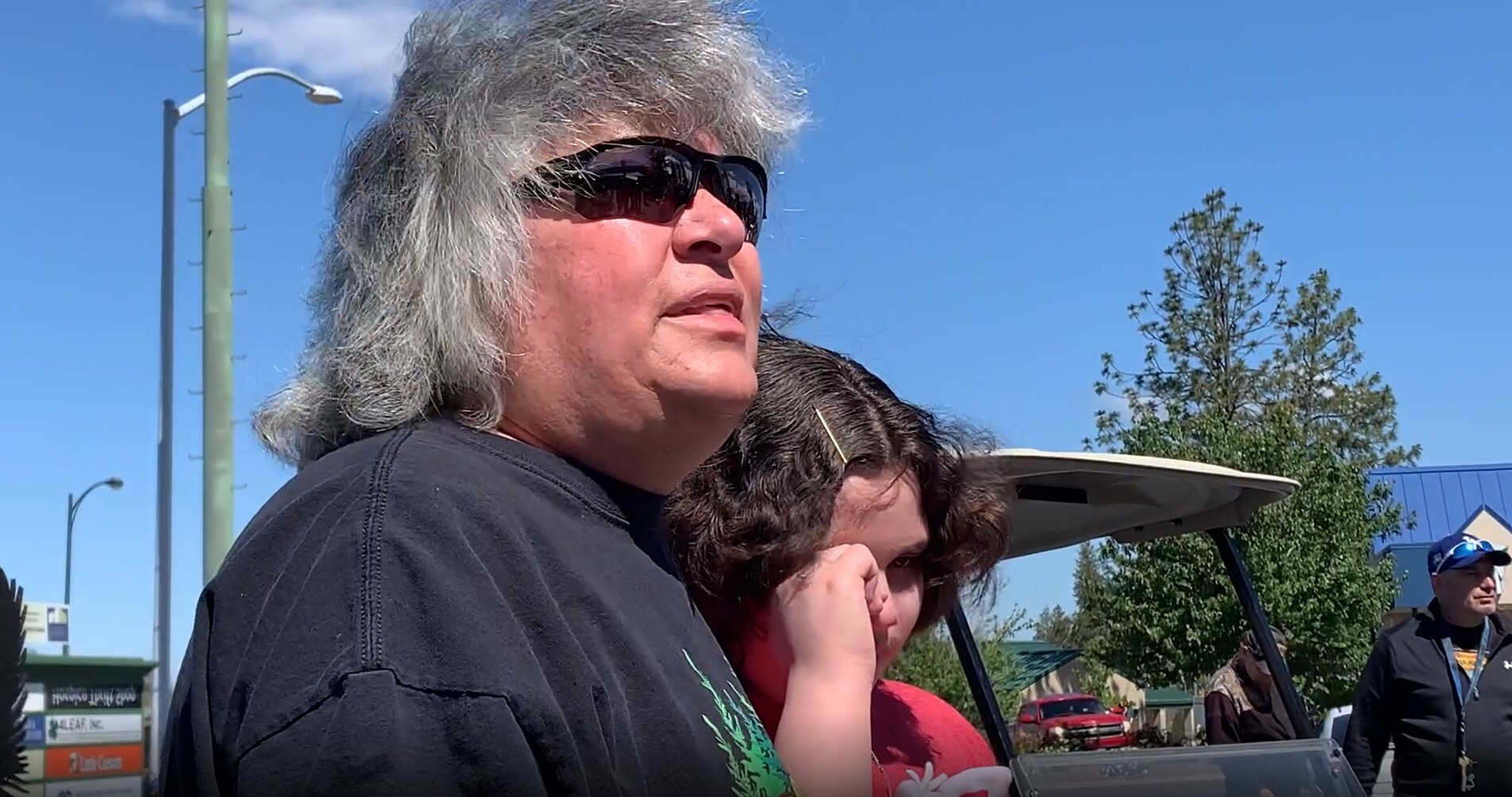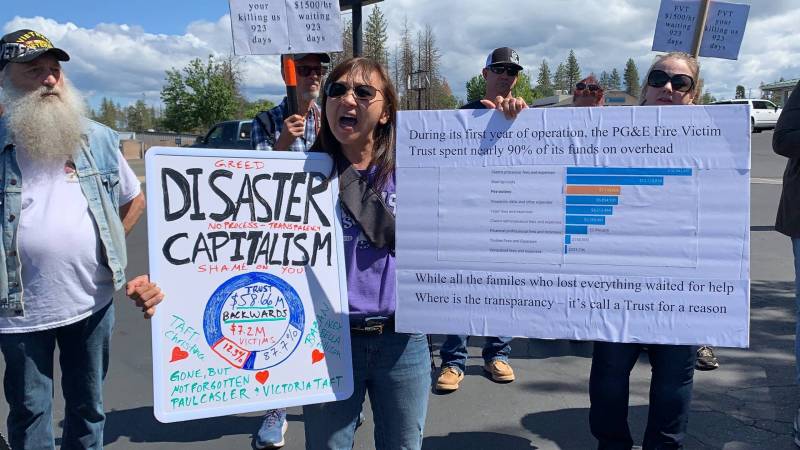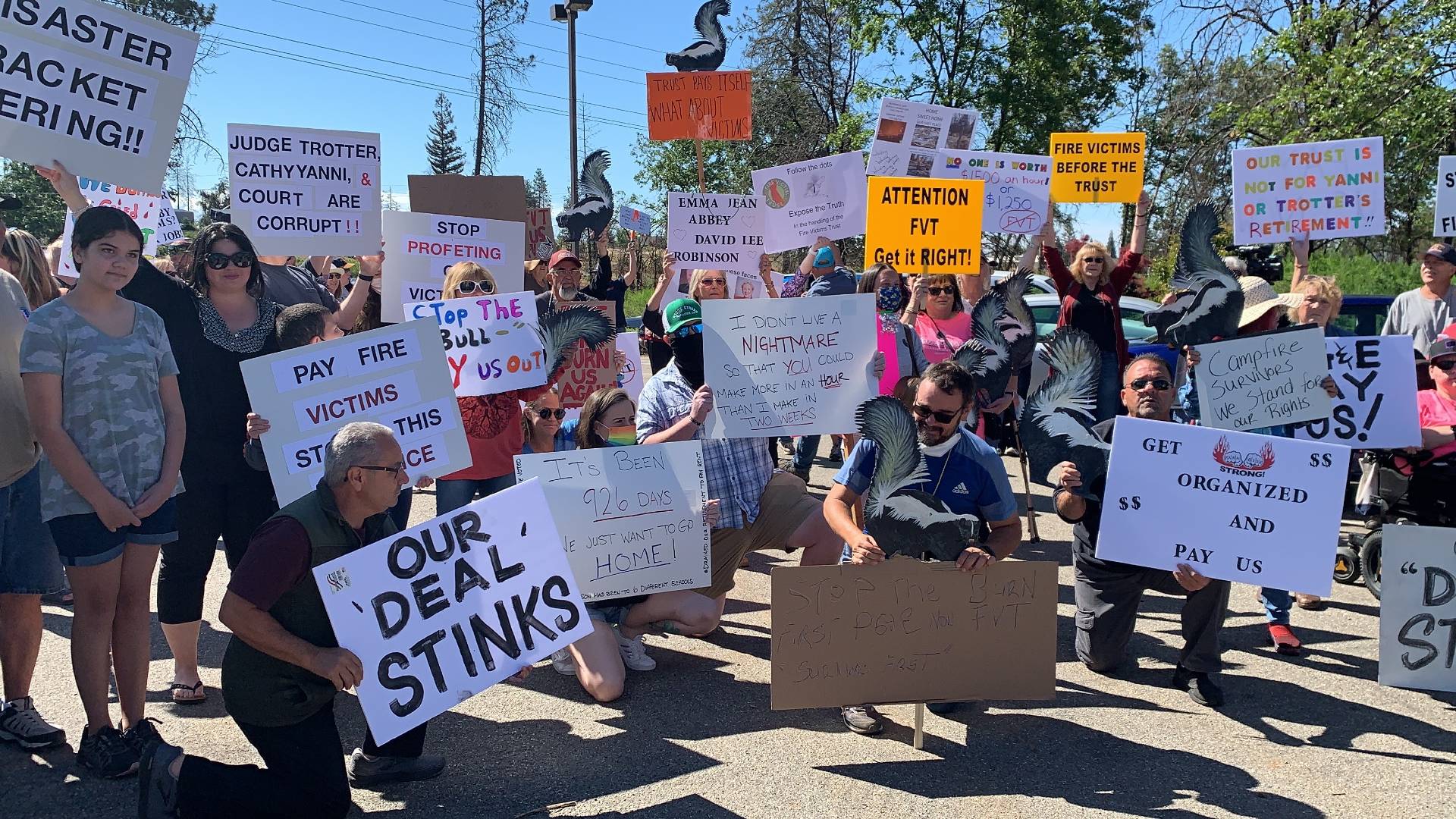Teri Lindsay said she had no intention of speaking at a fire survivors’ rally that drew about a hundred people to the Skyway in Paradise Saturday. But as her daughter, Erika, stood by her side — tears streaming down the young girl’s face — Lindsay voiced her frustration at her family’s living conditions 2.5 years after the 2018 Camp Fire.
"Every time she sees smoke, she cries. She can’t heal until we can go home," Lindsay said of Erika, who was 7-years-old when the 2018 Camp Fire destroyed their house, and thousands of others in Paradise. The fire was caused by equipment belonging to PG&E. They’ve been living in a trailer overlooking a branch of Lake Oroville ever since.
Like the vast majority of the 70,000 fire victims of PG&E fires caused between 2015 and 2018, Lindsay has not yet received any money from the Fire Victim Trust. The Trust was set up last year to distribute billions of dollars as part of a settlement between fire survivors and PG&E.

Lindsay said she was motivated to join this weekend’s rally after reading a KQED investigation, published earlier this month, which showed that the Fire Victim Trust racked up $51 million in overhead costs last year while distributing $7 million to fire victims during that period. The investigation was based on KQED’s analysis of federal bankruptcy court filings, court transcripts and correspondence between the Fire Victim Trust and fire victims.
At the end of last year, fire victims had received less than 0.1% of the approximately $13.5 billion they were promised.
“I thought that I was healing. Until that report came out, it changed my life and took me back to the day. I did not realize how well they're being paid and we’re living in squalor still,” Lindsay said.


